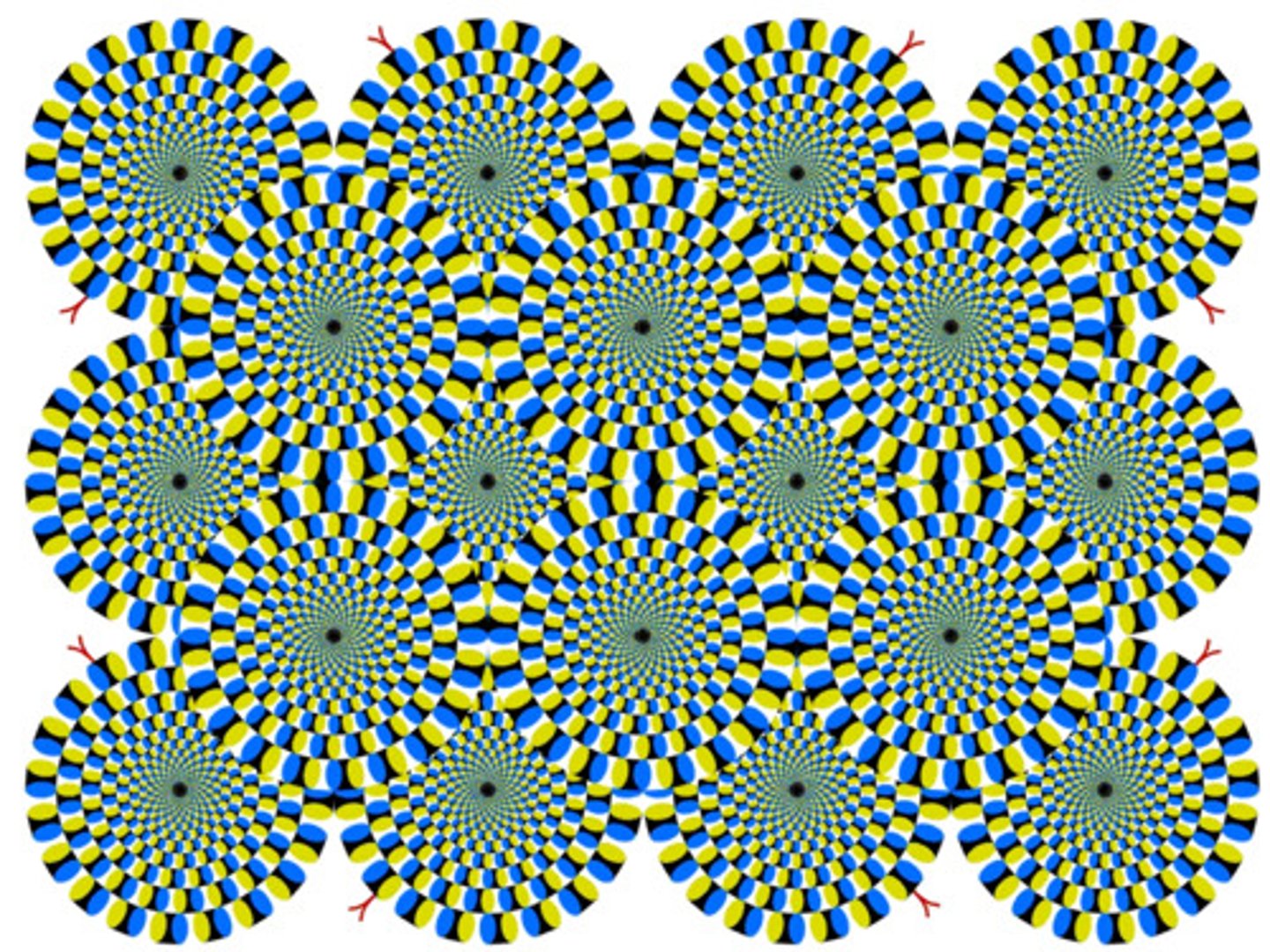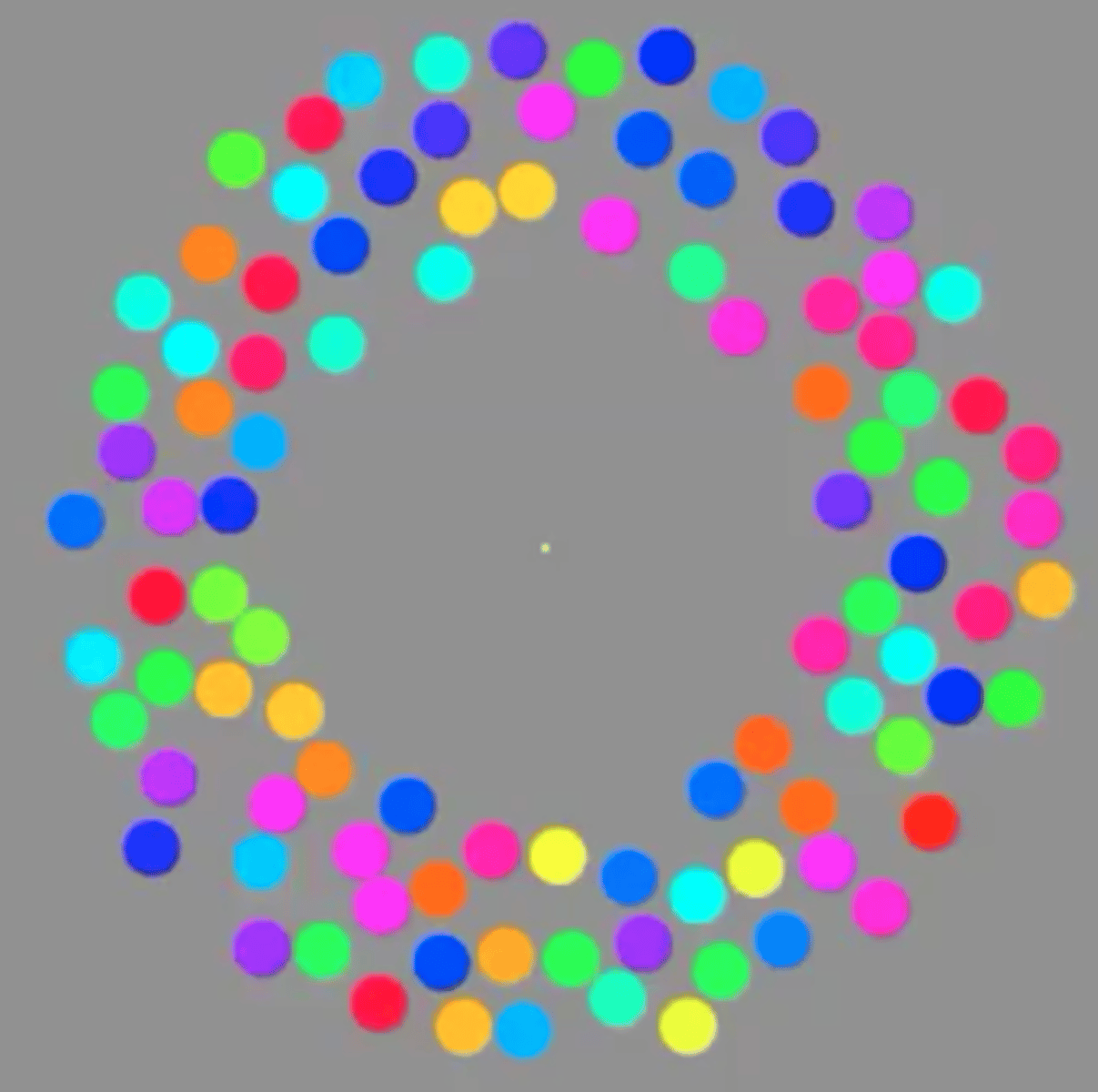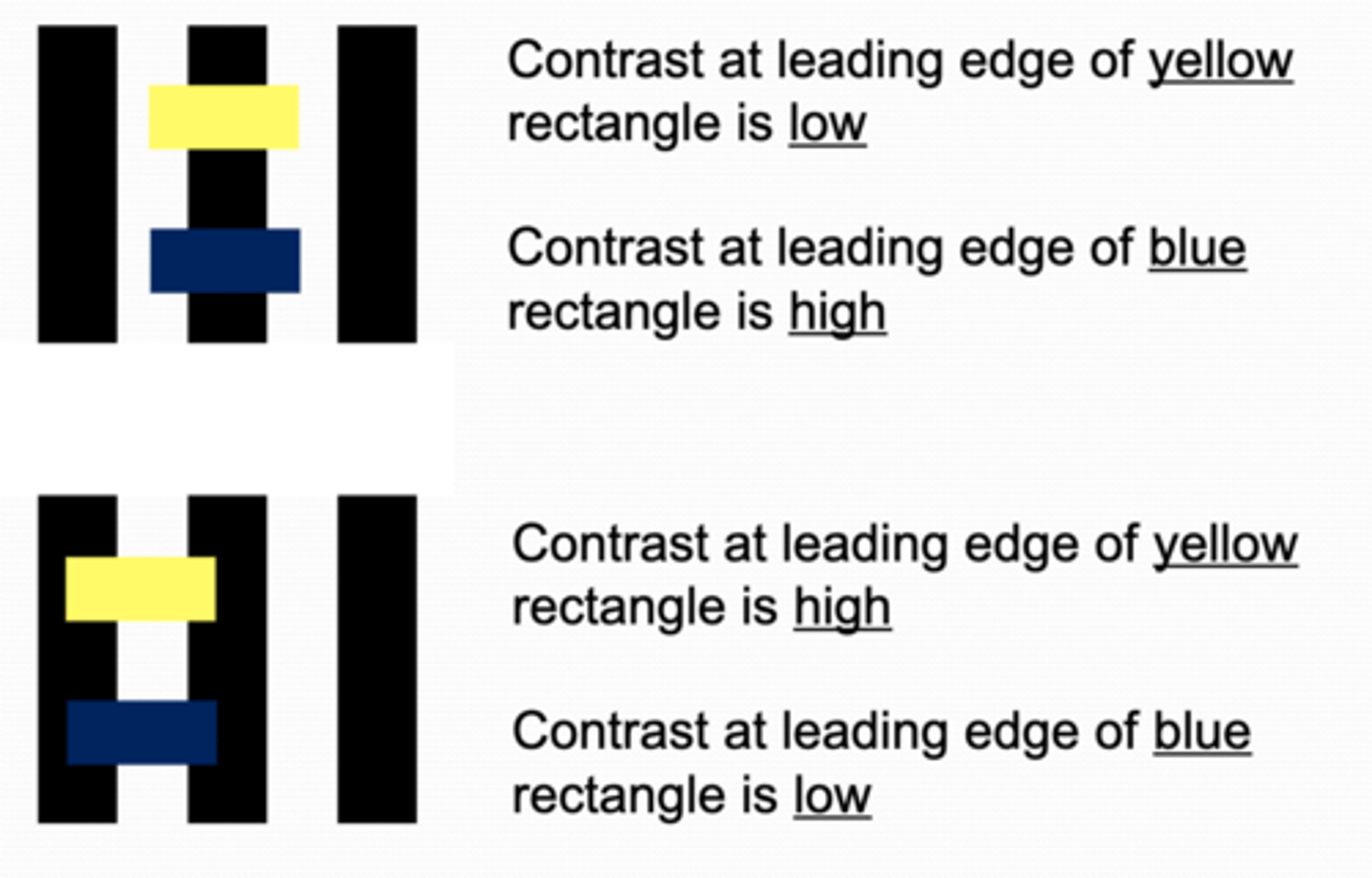Motion Perception
1/20
There's no tags or description
Looks like no tags are added yet.
Name | Mastery | Learn | Test | Matching | Spaced |
|---|
No study sessions yet.
21 Terms
functions of motion perception
break camouflage, attract attention, segregate objects from the background, interpret events, determine the structure of objects, determine what actions people are performing
kinetic depth effect
the perception of a 3D structure from the motion of a 2D structure
akinetsopia
an inability to perceive motion due to either disease or trauma affecting the part of the brain responsible for motion perception
how do people with akinetsopia perceive the world
things appear still, but when they look away and look back, they had moved, like patient L.M.
when do we perceive motion
real motion, illusory motion, motion after effects, induced motion
illusory motion
when we perceive motion when nothing is actually moving

apparent motion
occurs when a series of stationary images are presented in succession to give the impression of motion

when does apparent motion not work
when the stationary images are presented too far apart
what is apparent motion insensitive to
colour changes, however these can be used to disambiguate ambiguous apparent motion
motion aftereffect
after viewing a moving stimulus for a short time, if you shift your gaze to a stationary object it will appear to move

induced motion
a nearby object effects the perceived motion of a second object, or causes a second object to appear to move, eg. moving background causes a stationary object to appear to move

motion induced blindness
motion makes things disappear
motion induced change blindness
when objects move, it is more difficult to notice changes (eg. colour changes)

why doesn't change blindness happen in everyday life
motion transits cue you to the part of the image that changes
why does motion induced change blindness occur
when things are moving, there are transient signals associated with all objects, not just the ones changing, so it is harder to notice changed
what does the footsteps illusion show
lower contrast objects appear to be moving slower than higher contrast objects

aperture problem
if you can't see the ends of a line, the movement of a line is ambiguous and is captured by the movement of the terminators (points where the line joins the aperture)
what does the aperture problem show
when the terminators move horizontally, the line appears to move horizontally; when the terminators move vertically, the line appears to move vertically

barber pole illusion
the lines always appear to move up or down because there are lines curving around the cylinder that create visual terminators that move vertically
who introduced the idea of motion aftereffect?
Mather et al. in 2008
Who created the footsteps illusion and in which year?
Anstis in 2003